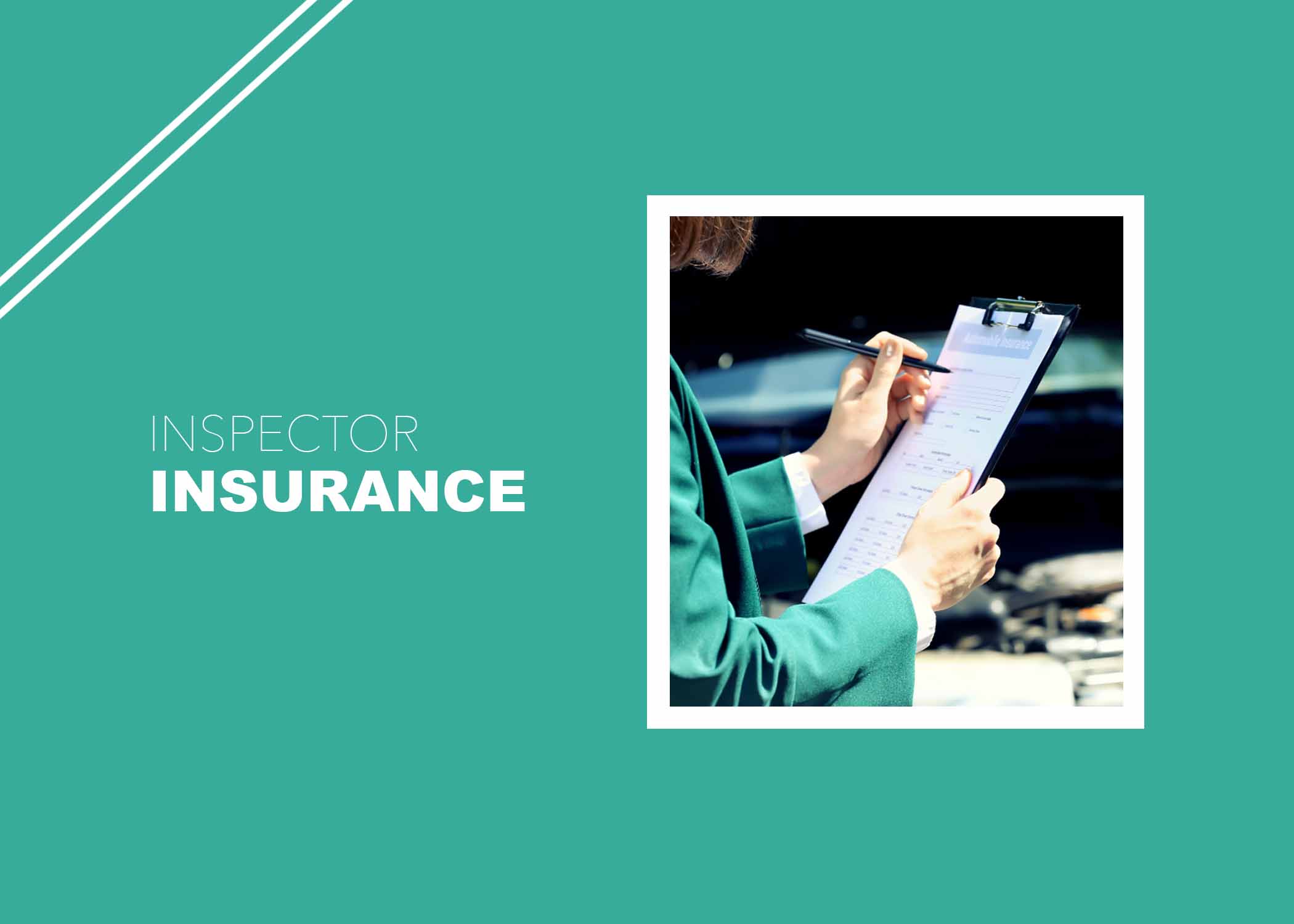Insurance inspectors play a crucial role in the insurance industry, helping insurance companies assess risks and determine appropriate coverage for policyholders.
Their thorough assessments and recommendations help insurance companies make informed decisions and provide valuable support to policyholders.
Understanding the responsibilities and importance of insurance inspectors is essential for insurers and policyholders. Luckily, this guide will explore everything you need to know about insurance inspectors, including their responsibilities, qualifications, etc.

Who is an Insurance Inspector?
An insurance inspector is a professional who evaluates properties, vehicles, or other assets on behalf of insurance companies to assess risk factors and determine insurance coverage eligibility. These inspectors thoroughly examine properties or assets to identify potential hazards, assess conditions, and ensure compliance with insurance policies.
READ ALSO: Insurance Industry – Importance of the Insurance Industry
Responsibilities of an Insurance Inspector
An inspector in an insurance company is expected to carry out the following roles and duties;
- Conducting on-site inspections of properties or assets to assess risk factors.
- Documenting observations, measurements, and photographs during inspections.
- Evaluating property conditions, safety features, and potential hazards.
- Verify the information provided by policyholders and conduct background research as needed.
- Providing detailed reports to insurance underwriters to assist in determining coverage and premiums.
- Recommending risk mitigation measures to policyholders to minimize potential losses.
Qualifications and Skills Needed to Become an Insurance Inspector
You need to have the following skills and qualifications;
- Education: Insurance inspectors typically have a high school diploma or equivalent, although some may have post-secondary education in fields such as construction, engineering, or insurance.
- Training: Many insurance companies provide on-the-job training for new inspectors, covering topics such as inspection techniques, risk assessment, and report writing.
- Skills: Effective communication, attention to detail, analytical thinking, and problem-solving skills are essential for insurance inspectors. They must also know building codes, safety regulations, and insurance policies.
How to Become an Insurance Inspector
Becoming an insurance inspector typically requires a combination of education, training, and relevant experience. Here are the general steps to becoming an insurance inspector:
Obtain a High School Diploma or Equivalent
Most insurance inspector positions require a high school diploma or GED. Focus on subjects such as mathematics, English, and any courses related to construction or building inspection.
Gain Relevant Experience
While not always required, having experience in fields such as construction, real estate, or insurance can be beneficial. Look for entry-level positions or internships that provide hands-on experience with property inspections or risk assessment.
Obtain Necessary Licenses or Certifications
Some states may require insurance inspectors to hold specific licenses or certifications. Research the requirements in your state and complete any necessary training or examinations to obtain the required credentials.
Develop Key Skills
Insurance inspectors need strong attention to detail, communication skills, problem-solving abilities, and knowledge of building codes and safety regulations. Work on honing these skills through education, training, and practical experience.
Apply for Entry-Level Positions
Look for job openings with insurance companies, inspection firms, or government agencies that specialize in property or vehicle inspections. Entry-level positions may include assistant inspector or trainee roles, where you can learn on the job and gain experience under the guidance of experienced inspectors.
Continue Professional Development
Stay updated on industry trends, changes in regulations, and advancements in inspection techniques. Consider pursuing additional training or certifications to expand your skills and qualifications as an insurance inspector.
Build a Professional Network
Networking with professionals in the insurance industry, attending industry events, and joining relevant professional associations can help you establish connections and advance your career as an insurance inspector.
By following these steps and continuously seeking opportunities for growth and development, you can work towards becoming a successful insurance inspector.
Importance of Insurance Inspectors
These are some reasons why inspectors are important in an insurance company;
- Risk Assessment: Insurance inspectors help insurance companies accurately assess risks associated with insuring properties or assets, which influences coverage decisions and premiums.
- Loss Prevention: By identifying potential hazards or safety deficiencies, insurance inspectors contribute to loss prevention efforts, ultimately reducing the likelihood of insurance claims.
- Compliance: Insurers rely on inspectors to ensure that policyholders comply with insurance requirements and safety standards, helping to maintain the integrity of insurance policies.
- Customer Service: Insurance inspectors provide valuable assistance to policyholders by offering recommendations for risk mitigation and helping them understand their insurance coverage options.
ALSO CHECK OUT: How to Become an Insurance Agent – Who Can Be an Insurance Agent?
Types of Insurance Inspections
These are the major types of insurance inspections;
Property inspections
It involves evaluating residential or commercial buildings to check for any issues, safety concerns, or potential risks. This includes looking at the structure, electrical systems, plumbing, and other features to ensure they meet safety standards.
Vehicle inspections
These are done to assess the condition of vehicles and ensure they meet insurance requirements. This includes checking the vehicle’s safety features, such as brakes and lights, as well as its overall condition to determine its insurability.
Specialized inspections
Focuses on specific types of insurance policies, such as fire insurance or liability insurance. These inspections may involve assessing risks related to fire hazards, potential liabilities, or workplace safety to determine appropriate insurance coverage.
Conclusion
Insurance inspectors are integral to the insurance industry, playing a vital role in risk assessment, underwriting, and loss prevention. Their expertise helps insurance companies accurately evaluate risks, determine appropriate coverage, and safeguard assets against unforeseen events. By upholding industry standards and promoting safety, insurance inspectors contribute to the stability and reliability of the insurance market, ultimately benefiting both insurers and policyholders.



